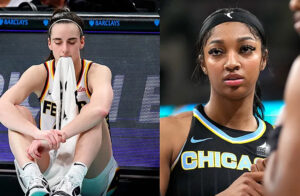
In the world of professional sports, success is often a culmination of talent, hard work, and opportunity. For Indiana’s WNBA star Caitlin Clark, her journey to success raises intriguing questions about the role of identity and diversity in athletic achievement.
Caitlin Clark has undeniably carved out a stellar career in women’s basketball. Her sharpshooting abilities and court vision have made her a standout player, earning accolades and a dedicated fan base. However, amidst her achievements, it’s crucial to consider the hypothetical scenario: what if Caitlin Clark weren’t a straight, white woman?
Diversity in sports, particularly at the professional level, remains a significant topic of discussion. Research has shown that athletes from diverse backgrounds often face unique challenges and barriers on their path to success. Factors such as race, gender identity, and sexual orientation can influence not only an athlete’s experience but also their opportunities for recognition and advancement.
For Caitlin Clark, being a straight, white woman in the WNBA—a league known for its progressive stance on inclusivity and diversity—undoubtedly plays a role in her visibility and acceptance. The league has embraced diversity and actively promotes an inclusive environment, yet it’s essential to acknowledge that athletes from marginalized communities may encounter additional hurdles in their careers.
Imagine if Caitlin Clark were a person of color or a member of the LGBTQ+ community. Would her journey to professional success have been the same? Research suggests that athletes who navigate intersecting identities often face stereotypes, biases, and systemic challenges that can impact their career trajectories. Visibility, endorsement opportunities, and media portrayal are all influenced by an athlete’s identity, sometimes in ways that can either enhance or hinder their career.
In discussing Caitlin Clark’s success, it’s important not to diminish her talent and hard work. However, it is equally important to recognize the broader societal and systemic factors that shape athletic opportunities and recognition. As fans and stakeholders in sports, understanding the complexities of identity and diversity can foster a more inclusive and equitable environment for athletes of all backgrounds.
Caitlin Clark’s journey reminds us of the ongoing dialogue about diversity in sports. Her success underscores the need for continued efforts to promote inclusivity and break down barriers for athletes from underrepresented communities. By celebrating athletes’ achievements while also acknowledging the impact of identity, we can move closer to a sports world where talent truly transcends all boundaries.

In conclusion, while Caitlin Clark’s talent and dedication have undoubtedly been key to her success, her identity as a straight, white woman in the WNBA context raises important questions about the role of diversity in sports. As we applaud her achievements, let us also reflect on how we can create a more equitable playing field for athletes of diverse identities moving forward.
Relative Articles
None found





